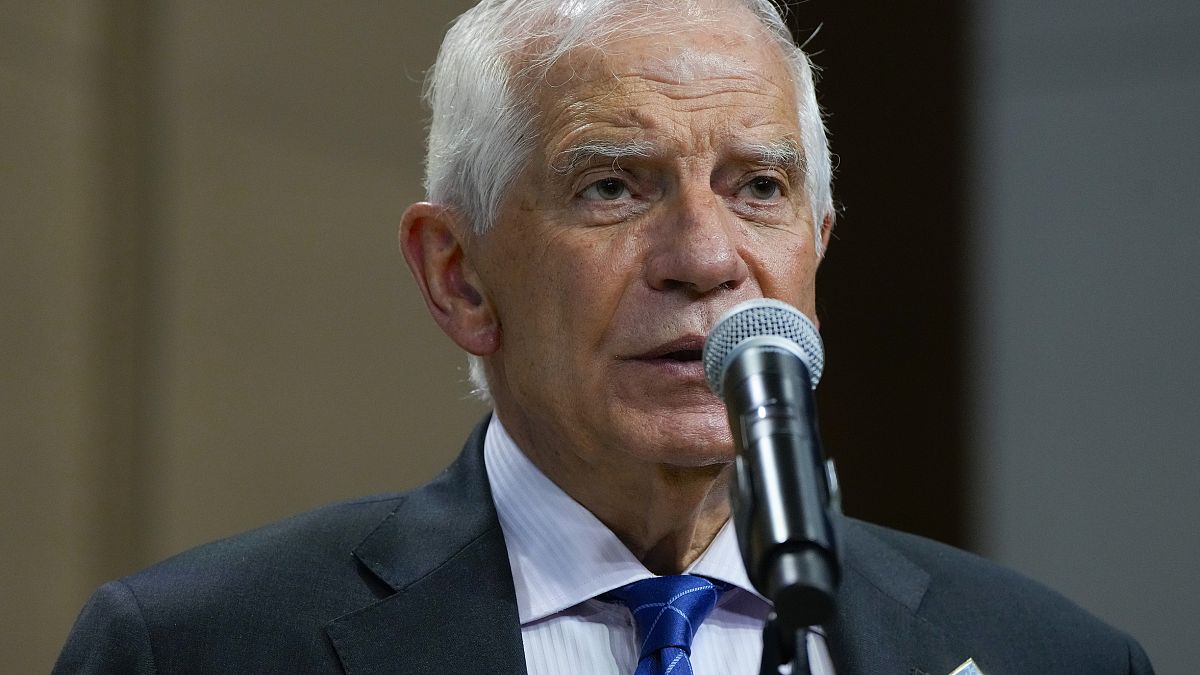EU foreign policy chief Josep Borrell has condemned comments made by Israeli ministers regarding humanitarian aid to the Gaza Strip. Specifically, Borrell criticized remarks made by National Security Minister Itamar Ben-Gvir, calling them “incitement to war crimes”. Ben-Gvir suggested cutting off humanitarian aid and fuel to Gaza until Israeli hostages are returned home and also advocated for the permanent occupation of Gaza. These comments came in response to an Israeli delegation attending ceasefire talks with Hamas in an effort to negotiate for the release of hostages still held in Gaza.
Ben-Gvir’s comments were not the only controversial remarks made by Israeli officials. Finance Minister Bezalel Smotrich also caused outrage when he suggested that deliberate starvation of Palestinian civilians “might be justified and moral”. He stated that it could be morally justified to withhold aid until Israeli hostages are returned, acknowledging that causing the death of two million civilians may not be permissible in the current global reality. Smotrich also mentioned the need for international legitimacy for any actions taken during this conflict. Borrell condemned these statements from both Ben-Gvir and Smotrich, describing them as “an incitement to war crimes”.
In response to these statements, Borrell urged the Israeli government to distance itself from these comments and to focus on negotiating in good faith for an immediate ceasefire with the assistance of mediators such as the US, Qatar, and Egypt. The EU foreign policy chief also suggested that sanctions should be on the EU agenda to address these concerns. Netanyahu’s office had previously announced that an Israeli delegation would participate in ceasefire talks with Hamas, despite criticism from Ben-Gvir and others. Borrell emphasized the importance of engaging in negotiations and finding a peaceful resolution to the conflict in the region.
The debate surrounding the humanitarian aid to Gaza and the treatment of Palestinian civilians underscores the complexities of the Israeli-Palestinian conflict and the challenges of finding a sustainable solution. The differing views within the Israeli government on how to approach negotiations with Hamas and the release of hostages highlight the internal divisions and political tensions at play. The international community, including the EU, plays a crucial role in advocating for a peaceful resolution and ensuring the protection of civilians in conflict zones.
As the situation in Gaza continues to evolve, it is essential for all parties involved to prioritize the well-being of civilians and to adhere to international law and humanitarian principles. Borrell’s condemnation of statements that incite war crimes sends a clear message that such rhetoric is unacceptable and undermines efforts for a peaceful resolution. By focusing on negotiations and diplomatic solutions, there is hope for progress towards a ceasefire and the eventual release of hostages, bringing much-needed relief to the people of Gaza who have suffered the consequences of ongoing conflict.










